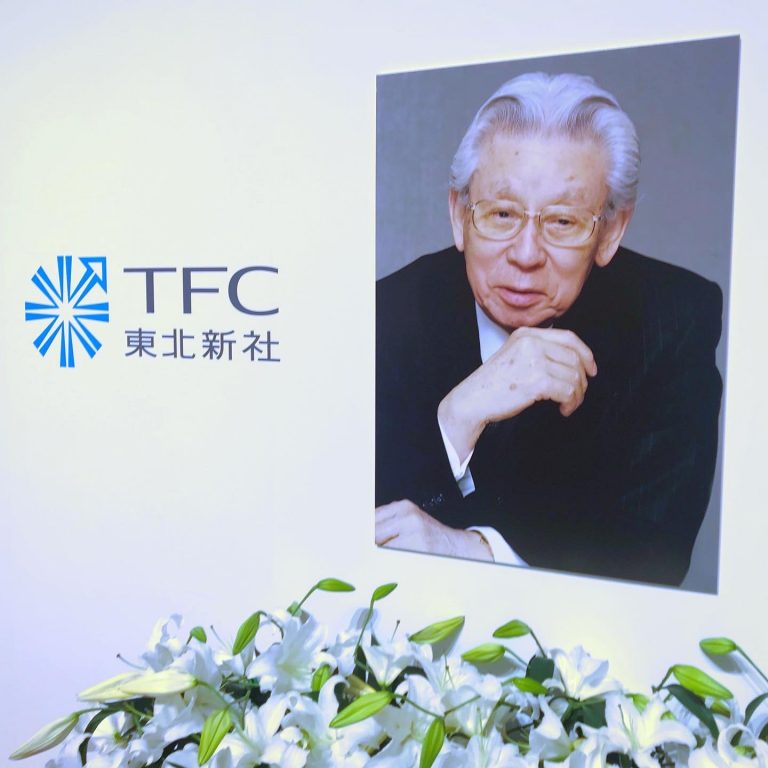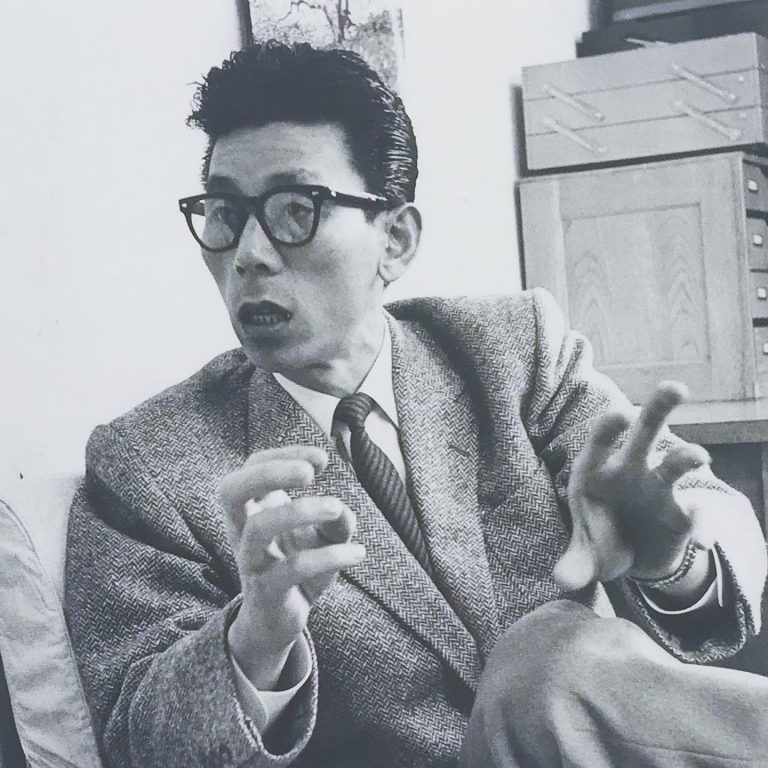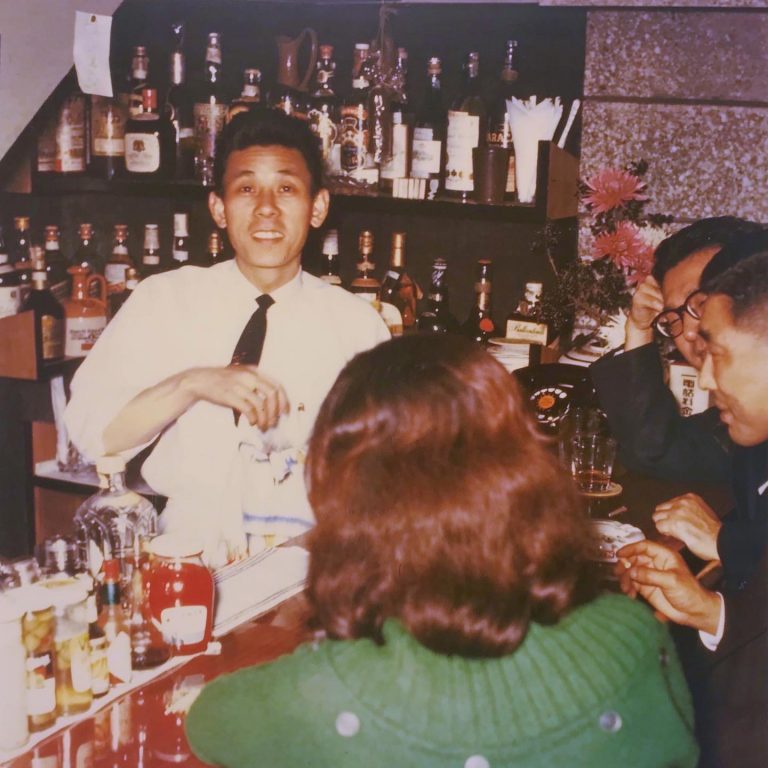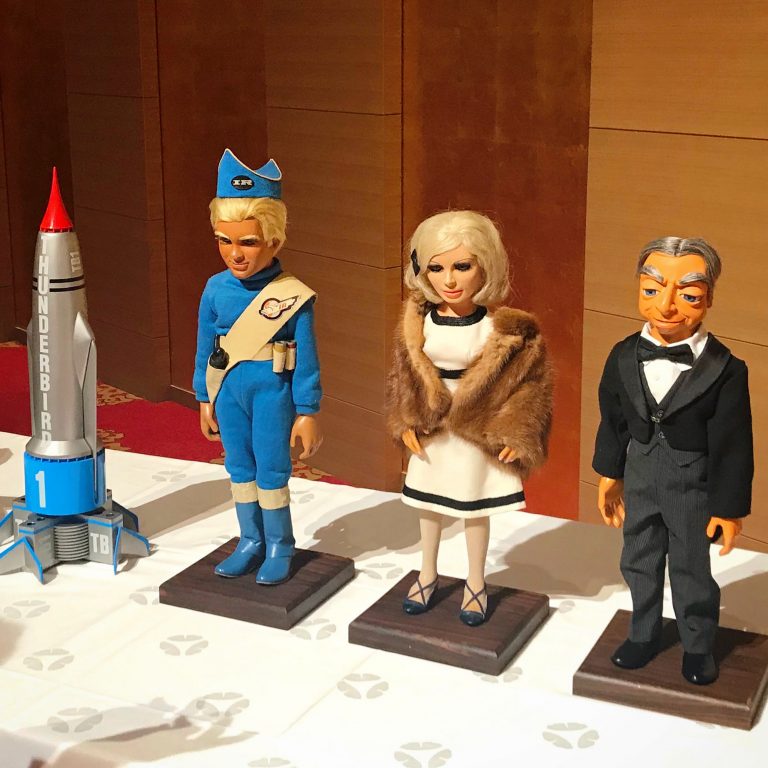Mr. Banjiro Uemura, founder of Tohoku Shinsha.

I received a photo of the memorial service for my mentor, Mr. Banjiro Uemura, founder of Tohoku Shinsha, who passed away last year at the age of 90. Unfortunately, I was overseas and could not attend.
I joined Tohoku Shinsha as a new graduate and was assigned to the Satellite Broadcasting Division from the Commercial Production Department, where I worked under Mr. Uemura for a long time.
It may seem strange that someone as great as Mr. Uemura has not left any autobiography. One day, Mr. Yamashita, the president of Television Technica (now Omnibus), a subsidiary post-production company, told me, “We will record my life on film. The filming was instantly halted. He never spoke about his life after that.
I had the opportunity to work with Mr. Uemura on a daily basis for several years before he resigned from Tohoku Shinsha, so I would like to write about his life as far as I know.
Back in the 1950s, before he started Tohokushinsha, Mr. Uemura owned a bar called COMO in Shinbashi. There, young actors of the Shiki Theater Company gathered, and among them was Tetsuko Kuroyanagi. Ms. Uemura was born in 1929, so she was in her 20s.
In the late 1950s, as the era shifted from radio to television, one of the customers at the bar was Ryotoku Watanabe (then section chief, later vice president) of Toei’s television department. He took on “Masked Rider” as a new venture for the TV division, which was a subsidiary of the movie company, and turned it into a hit series, giving Toei a profit of over 80 billion yen. It was Mr. Uemura who advised him on this. After Mr. Watanabe was fired from Toei in 1996 (he spent 200 million yen on his birthday party, which was reported in a weekly newspaper and he resigned), he established his own private office and remained in close contact with Mr. Watanabe until his death.
In the 1960s, the television industry lacked in-house production capabilities. Mr. Uemura saw a business opportunity in this situation, and he created “Tohoku-sha” (named by Keita Asari after Mr. Uemura’s hometown of Akita, Japan), which added “Japanese dubbing” to programs imported from overseas. (The logo’s direction points to Akita.) The company was established and began contract work for these programs. In the beginning, TV stations did their own dubbing, but they recorded one episode a day. However, Mr. Uemura received orders from TV stations to record three episodes in one night, asking the voice actors to work all night because he would pay them twice as much as they were paid. This approach proved to be a great success. (Founded in 1961)
Dubbing work for such films as “The Wife is a Witch,” “Operation Spy,” and “Laramie Ranch” was very prosperous. Television programming at the time was so short of content that each episode was repeated three times a week.
Later, with “Thunderbirds” (which is why Mr. Kuroyanagi appears in it), he entered the “copyright” business, not only dubbing but also importing programs from overseas himself. This was done in response to the liberalization of trade, which allowed companies other than major TV stations to send money overseas and purchase TV rights from overseas. One rival company, Pacific Television, mishandled royalty reporting to Hollywood studios and was forced into bankruptcy. Even there, Mr. Uemura gained the immense trust of Hollywood and Jewish executives.
As a side note, Mr. Uemura was for a long time the president of the Jewish Association of Japan. When a Jewish friend of his passed away, he would receive a Japanese-style funeral offering, which was a proof that he had planted a tree in Israel. Planting trees in Israel, the spiritual home of the wandering Jewish people, is a cause of great joy for the Jewish people, and it was a great honor for Mr. Uemura to be included in such a custom as a Japanese citizen.
By 1970, Tohoku Shinsha had successfully established three profit pillars in addition to its traditional dubbing business: the copyright business and the merchandising rights related to the works, and even built its own building (called the Thunderbird Building) in Akasaka.
There is also a story about how Mr. Uemura negotiated with Keita Goto on behalf of the town and made a name for himself when the Tokyu Group demanded the eviction of the land around the Shimbashi area where the bar COMO was located, how he stole a jewelry smuggling deal on the beach where a ship had wrecked and washed up, and how he was allowed to join the smuggling trade. Melanie Griffith was in need of money, and there are many outlandish episodes, such as the story of the allowance given to her by Ms. Uemura.
He always told me exciting stories about his friendship with such Showa-era monsters as Eishio Kodama, Tsuneo Tachikawa, and Yasukai Tokuma.
I was assigned as a staff member preparing for the launch of Skyport TV, a satellite broadcasting service using a communications satellite launched in 1989. I was assigned to the staff preparing for the launch of Skyport TV, a satellite broadcasting service using telecommunications satellites launched in 1989. Since then, I have experienced firsthand the multichannel era in all its glory and turmoil, including the problem of the boundary between telecommunications and broadcasting, Softbank’s takeover of TV Asahi with the start of digital broadcasting, the establishment of J SkyB by 20th Century Fox Chairman Lupard Murdoch, and the entry into Japan of DirecTV of the United States. This is described in detail in the book “The Break of a Sky TV: Men Who Bet on CS Media,” written by Ryuichi Yamashita, a former reporter in the political department of the Asahi Shimbun (then Asahi Newstar, now managing director of CS One Ten). For some reason, Fukuda appears as a villain.
https://iss.ndl.go.jp/books/R100000002-I000004017957-00
At the time, Mr. Uemura was extraordinarily enthusiastic about satellite TV and said, “I don’t want to end up as an old man in a commercial production company. Eventually, he was able to become the owner of six channels, including “Star Channel,” “Super Channel” (now Super Drama TV), “Family Theater,” “Classica Japan,” “Igo/Shogi Channel,” and “Playboy Channel.
It was around 1993, I think, when I accompanied Mr. Uemura to the Cannes Film Festival as a bag-bearer, and we were sitting on a bench in front of OMEGA to take a rest, when Mr. Uemura said, “Fukuda-kun, the only time I worked for someone was when I was a bartender at an American military base. At that time, the watch on the soldier’s wrist was an Omega, which I admired. Mr. Uemura graduated from junior high school and during the war was mobilized as a student at the Nakajima Aircraft (now Fuji Heavy Industries) factory in Gunma, where he made fighter planes. He went straight into the workforce. Since then, he has been a great genius who has expanded his business with his unique perspective. Even now, when I am troubled by a business decision, I think of Mr. Uemura’s words.
I truly have endless memories. There are many more episodes.
In the middle of the night of a typhoon, I received a phone call asking me to take a picture with a disposable camera to see if the signboard of the supermarket I manage (National Hemp Market, Super Denen) was off.
The company tried to create a spinning sign that would be visible to high-speed cars driving on the Ring Road.
He was ordered to find thick cardboard boxes in the U.S. to put VHS tapes, which were still expensive, as freebies in convenience store magazines. He dreamed of this idea every morning and wrote it down in a note on his bedside table.
The toilet bowl in the men’s restroom was changed from a low position to a high position to eliminate bouncing, and the experiment was adopted.
The company started a company called National Trading Co. because it was unreasonable for the group companies to buy toilet paper, which they consume every day, from an outside source.
I presented an expensive parasol for his wife as a souvenir for a weekend golf client, but it was actually made of waterproofed scraps of curtains I had purchased in Milan for delivery to the Imperial Hotel.
I had a staff member return from London with a bag of high quality ham with import restrictions.
He requested that an image of Halley’s Comet taken in Cannes be used as the title background for “Star Channel” and that he receive royalties. At the time, Fukuda was the sales manager of Star Channel and concurrently worked for Tohoku Shinsha, so he had to play a dual role. In other words, the president of Tohoku Shinsha was asking the general manager of Star Channel. (He was referring to the business model of NHK’s morning drama and symphony orchestra.)
He uses the drinking water for a luxurious swimming pool at his home in Oyamadai, and when writer Junichi Watanabe said, “You could distribute it to the neighborhood in the event of a disaster,” he was furious.
I went to Super Denen with him to teach him how to cook onions at a barbecue party, and he gave me a lecture on how to choose onions. The clerk at that time looked so much like Mr. Uemura that I was surprised to find out that he was his younger brother, Shichirou-san. LOL!
He was known for his love of cleanliness, and once found a chipped jacket on a chair and a boom box with music playing in the office in the trash.
The first time I saw a salesman wearing an aloha shirt on an overseas business trip, and since then there has been a rule of wearing a necktie even on the plane, and a senior staff member who even unbuttoned the second button of his shirt was angered.
We were all walking together through the streets of Cannes when suddenly I asked, “Do you know what road we’re on?” I answered, “This is the road where Napoleon made his triumphal return.
We had a dinner at a castle in a village called Moujaan in Cannes in early summer. It was a long course from 9:00 to midnight, but I was sweating hard because I was told to wear a jacket for the sake of decorum.
. It was suggested that I eat unagi (eel) in a rude manner with employees with whom I do not usually interact. At the table, someone spoke ill of one of the executives, and the banquet was immediately terminated.
The first advertiser for the Super Channel was Yoshinoya (then President Sugimoto), whom Mr. Uemura and I presented to. As a top salesperson, I went around with him to several companies, including Bandai, and got the hang of sales, and was able to get an ad for a used car shop in Tamagawa for the first time by myself. I was praised tremendously.
At the meeting, I found a note in Mr. Uemura’s hand that said, “He will remain a major general.
Calculators were required for meetings, and all reports and estimates had to be told to the nearest one or I would get in trouble. I still remember the telephone numbers of TV stations because I was told to memorize the telephone numbers of customers.
At the first meeting for the tie-up with DirecTV Japan, Tsutaya’s President Masuda called him by his first name “Banjirou-san” several times, which was considered rude and ended the discussion in an instant.
I delivered a white, heavy paper bag to Shintaro Abe, the father of the current Prime Minister Abe (then LDP policy chief). I do not know what was inside.
When 28-year-old Fukuda was entrusted with the acquisition of land in Oyamadai, Setagaya-ku, Tokyo, for the construction of an uplink base for satellite broadcasting, he severely offended the landowner, although he forgot the cause of the incident. He solved that problem with a single box of oranges. I was impressed by his logic that if a great person shows up with a heavy box of oranges to apologize, the landowner will forgive him.
I cannot write here about the story related to the Akita Sake Brewery or the incident of the Emperor’s dish on Hitotsugi Dori.
As I wrote, I was saddened by the image of Mr. Uemura’s charming figure.
Please spend your time in heaven in a truly peaceful manner.
Atsushi Fukuda

1962 Newspaper coverage of 1962.

COMO” bar in Shinbashi, Tokyo

Thunderbirds,” the catalyst for the breakthrough





